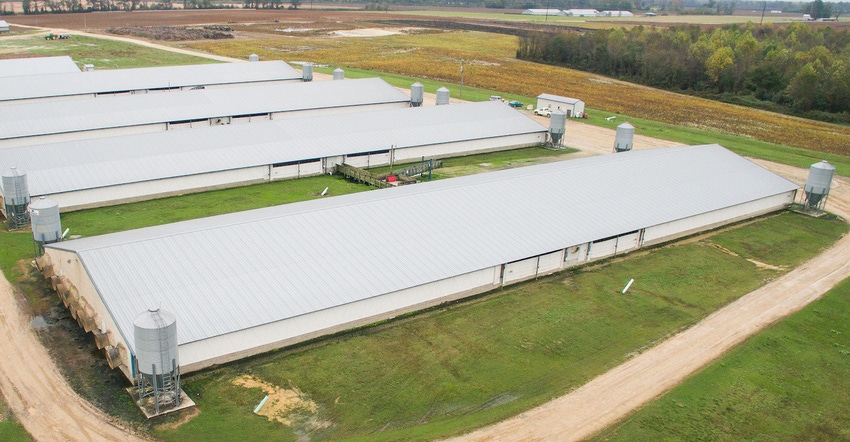North Carolina strikes settlement agreement on hog farm permitting
North Carolina Department of Environmental Quality will improve regulatory oversight of swine farms.

The North Carolina Department of Environmental Quality (DEQ) has reached a settlement agreement with a coalition of community-based environmental groups that will improve the regulatory oversight of industrial swine operations and better protect nearby communities from health and environmental impacts. The agreement marks the resolution of civil rights complaints filed against the state environmental agency in 2014 and 2016.
The complaint -- filed by the North Carolina Environmental Justice Network (NCEJN), Rural Empowerment Association for Community Help (REACH) and Waterkeeper Alliance -- alleged that DEQ allowed industrial swine facilities to operate with “grossly inadequate and outdated systems of controlling animal waste,” resulting in an “unjustified disproportionate impact on the basis of race and national origin against African Americans, Latinos and Native Americans.”
Under the agreement, which resolves complaints filed under the federal Title VI anti-discrimination law, DEQ proposes to make several modifications to the state’s animal operations general permit to provide closer regulatory oversight and stronger measures for environmental protection. The general permit is up for renewal this year. DEQ said it will seek public input from stakeholders and other interested parties within the next month.
DEQ will also design and implement an air quality study in Duplin County, N.C., and expand its existing water quality monitoring program in Sampson and Duplin counties. The new monitoring will help the state determine if environmental impacts are occurring in the region and, if so, how to best eliminate those impacts. In addition, DEQ will develop a more robust Title VI program governing all DEQ activities, including a method to assess potential community impacts related to agency decisions.
After completing the new measures, DEQ will review the outcome of the general permit renewal process, the monitoring data collected and the results of an assessment of community impacts to determine if additional action is needed.
“The agreement underscores DEQ’s commitment to strengthening environmental protection and public engagement in communities that are impacted by industrial swine facilities,” DEQ secretary Michael Regan said.
Will Hendrick of Waterkeeper Alliance said while these changes may seem technical, “they will begin to address air and water pollution from the swine industry.”
Naeema Muhammed, executive director of the NCEJN, recognized the groundbreaking nature of the settlement but also cautioned that “there is still a long way to go to address the harms caused by the swine industry.”
“For too long, people living in Duplin, Sampson and other counties in the heart of hog country have had trouble breathing when they go outside,” said Devon Hall, co-founder and program manager of REACH. “Even small changes in the permit can be important, like making clear that DEQ has authority to inspect without prior notice. It’s unacceptable that DEQ has been giving facilities advance notice before conducting an inspection, which means that the operation can just change what it has been doing and clean up before the inspector arrives.”
Hall also emphasized the importance of provisions in the settlement agreement calling for community involvement in water and air monitoring. “With thousands of swine operations across eastern North Carolina, the provisions in this agreement calling for monitoring may feel like a drop in the bucket, but they are a good start,” Hall said.
Muhammad believes that this agreement signifies a new dynamic in the relationship between DEQ and the communities of color that are most severely affected by the policies and decisions it makes. “As a result of the process we have engaged with DEQ over the last three years, the needs and priorities of those communities will be at the forefront of DEQ’s considerations going forward,” Muhammad said.
A statement from the North Carolina Pork Council stated that the agreement validates that there were not violations of the civil rights law in the permitting of hog farms in North Carolina, and the group looks forward to working with DEQ and other stakeholders "in regard to the many rules and regulations that apply to our farms."
About the Author(s)
You May Also Like




.png?width=300&auto=webp&quality=80&disable=upscale)
